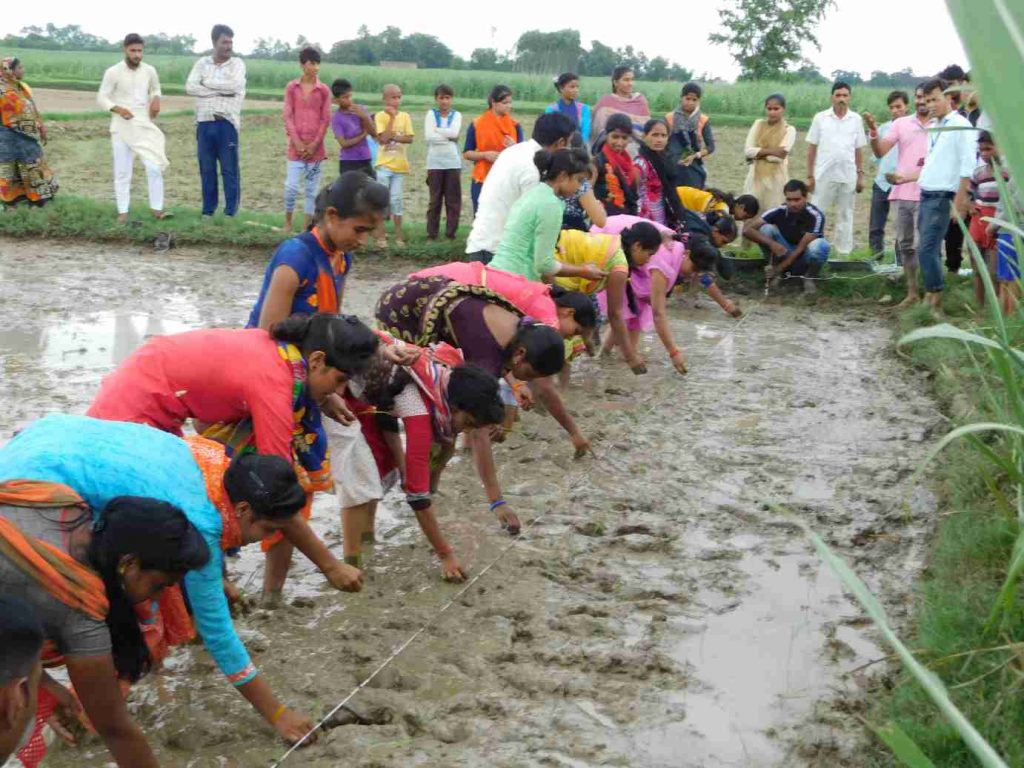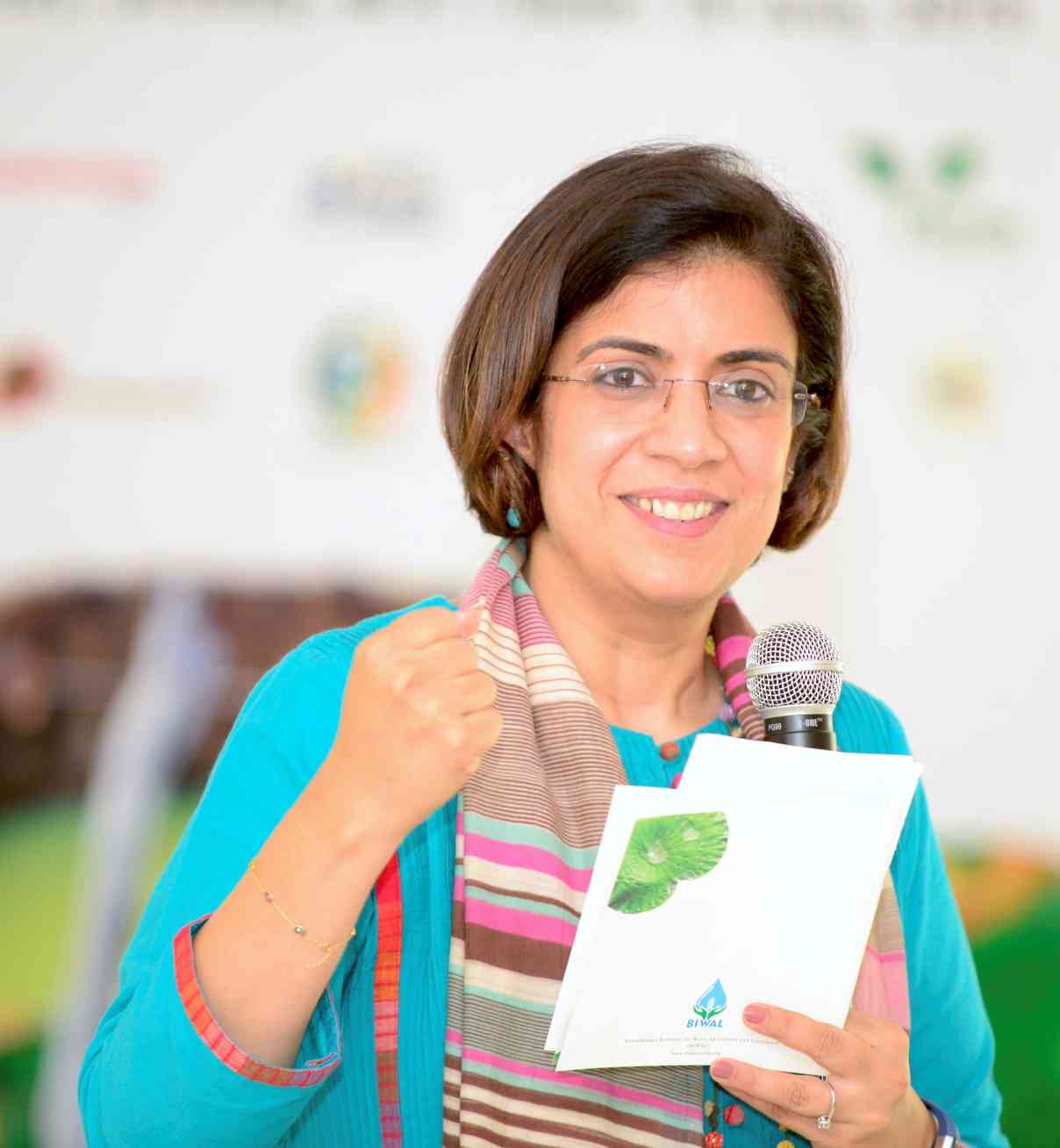Most of us at Hindustan Unilever Foundation have straddled careers in the private sector and the nonprofit world. We’re often struck by how these two worlds are almost at odds with each other. And yet, our experiences with our nonprofit partner teams suggest that there is more common ground here than we’d like to admit.
In business teams, marketing and sales generate demand with target consumers and ensure fulfilment with quality and consistency. Programme teams and frontline workers play corresponding roles in development interventions by catalysing community awareness and demand for key interventions, followed by delivering solutions. In our interactions with frontline field workers, we couldn’t help but notice that their methods to catalyse behavioural shifts among farmers mirror strategies adopted by marketing teams. As frontline field workers shared how they enter a village, how they engage with their stakeholders, and how they influence them, we realised that there are some universal principles at play:
Change starts with an ‘influencer’
Co-opting an influencer—an individual in the community who is recognised and whose voice is trusted is often the first step in seeding awareness. Our frontline workers draw on their local networks and partner with an anganwadi/ASHA worker or panchayat members to mobilise interest in water conservation or new agricultural methods. They know that the messenger matters just as much as the message. This resonates with how rural marketing teams devise promotional strategies to drive products and services when they enter new markets. Instead of relying on mass media, they start with local ambassadors who can drive localised awareness and credibility.
Seeing is believing
Any development innovation or habit change needs proof that it will work. But how do you make an idea or a concept credible? Our programme field teams believe in the power of demonstrations. They conduct live crop experiments in demonstration plots (often their own land) to prove to farmers the difference in crop height, density of foliage, and yield vis-à-vis a plot that follows traditional practices. Visible, measurable evidence of effectiveness helps reduce perceived risk of (crop) failure and drive adoption of innovative farm practices. Brands often use lab demonstrations for visual comparative differences between competitive products. This is a tried-and-tested method that establishes product superiority and encourages consumer adoption.

Location, location, location
Choosing the right location is not just a mantra for retail businesses. The location of a programme demonstration or an awareness campaign is crucial for its success. Our field teams often pick locations with proximity to the roadhead, along the key path that leads to the village—the heart of the village where the community gathers. If a programme site is in a remote part of the village or at its periphery, it is unlikely to be visited or accessed by farmers and women.
Customer centricity
When we ask our field teams why farmers trust them, they tell us it’s because they listen carefully to understand farmer needs, meet them regularly, and even lend farmers a hand in their fields when they are starting a new practice. They acknowledge that treating farmers as their key stakeholder and being responsive to them is key to the success of their programmes.
A thriving customer relationship is key to successful businesses.
Building long-term relationships helps ensure stickiness of change and sustainability of impact outcomes. A thriving customer relationship is key to successful businesses as well—listening to customer needs, being responsive, being available, serving unconventional requests are all building blocks of customer-centric brands that tend to live longer and do better than others.
The power of testimonials
Testimonials are a well-used marketing tool by businesses for customer acquisition. Our field teams employ the same principle in innovative ways to drive adoption at scale for development solutions. For example, they host film sessions featuring local farmers who can be easily recognised and can share their experiences of employing new farming practices in the local dialect. These testimonials from satisfied farmers are extremely powerful in convincing other farmers to adopt the same ideas.
Boots on the ground matter
Businesses recognise that their frontline teams (sales, customer service) are key to their success. A great strategy on paper can be undone in real life if the frontline fails. A cool campaign can falter if the frontline is not equipped to address demand. The role of frontline cadres in the social sector is as powerful and potent. They build community interest in development solutions, implement them, collect real-time data, and act to serve the interest of their members.
A great strategy on paper can be undone in real life if the frontline fails.
Investing in community-based cadres, building their skills is as, if not more, crucial for programme success as programme strategy and domain expertise. Frontline workers hold the key to quality outcomes and sustainable exits. Instead of treating them as the last mile, designing programmes with frontline workers at the heart and centre may fundamentally transform the trajectory of outcomes.
Stepping out of silos
We spend considerable time focusing on the differences between business and development principles. Some differences are undoubtedly real but there is also common ground to leverage. Strategies shared by our frontline teams reveal that these shared principles are alive, active, and amplifying outcomes where deployed.
—
Know more
- Read about why rural youth are a valuable asset to strengthen rural development in India.
- Read this handbook by the National Rural Livelihoods Mission on building the capacity of community cadres.
Do more
- Reach out to the authors at hindustanunilever.foundation@unilever.com to learn more about what they do.







